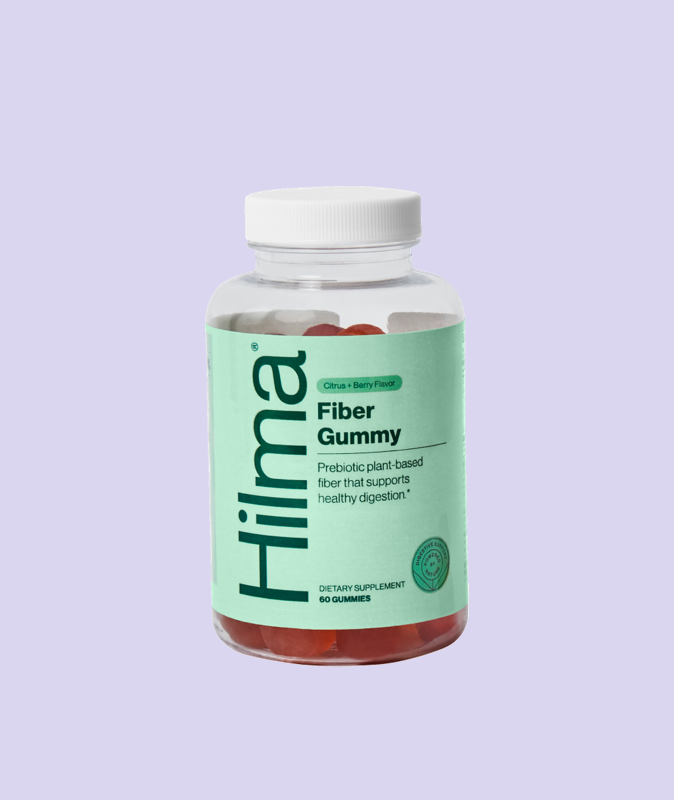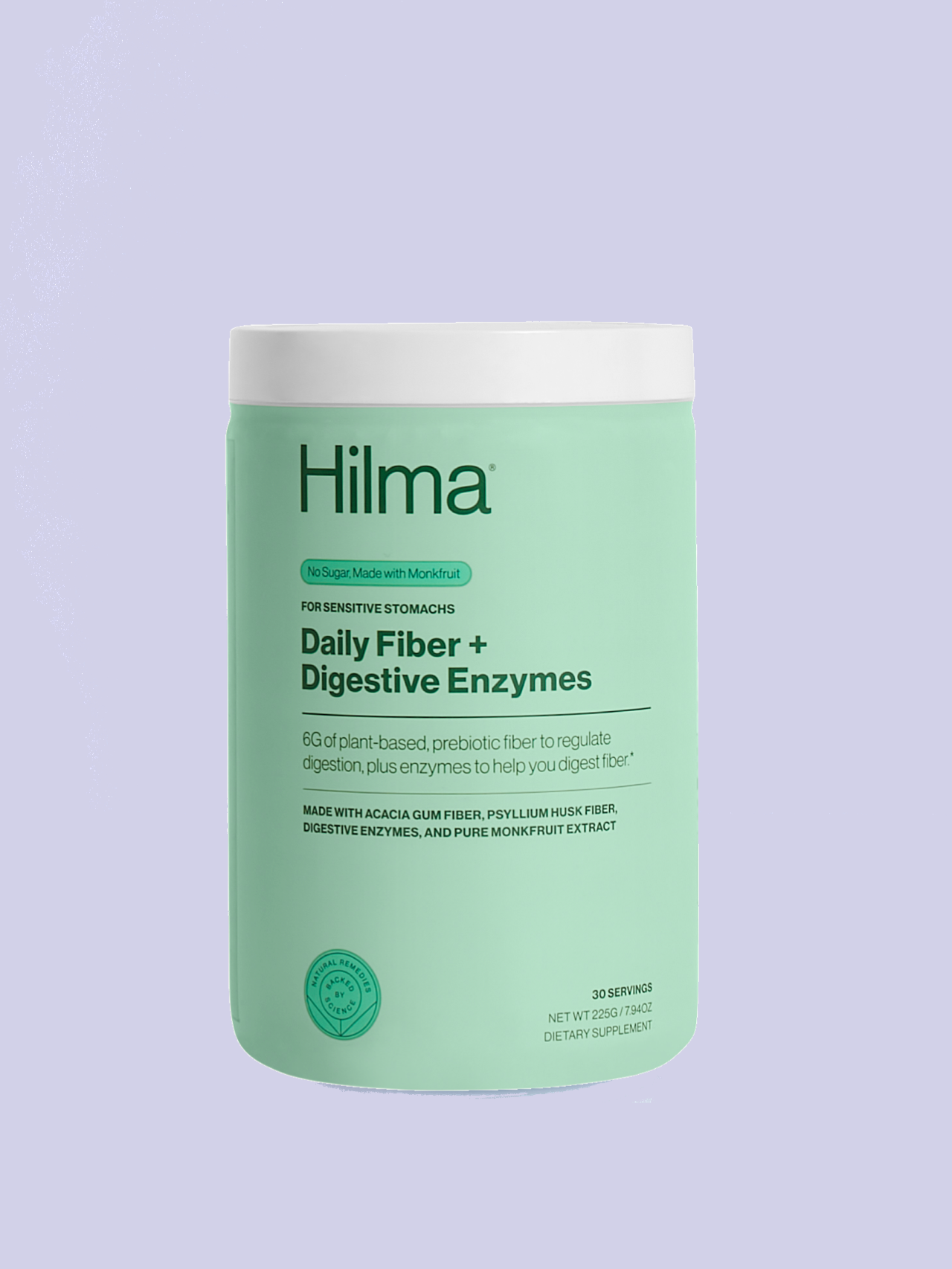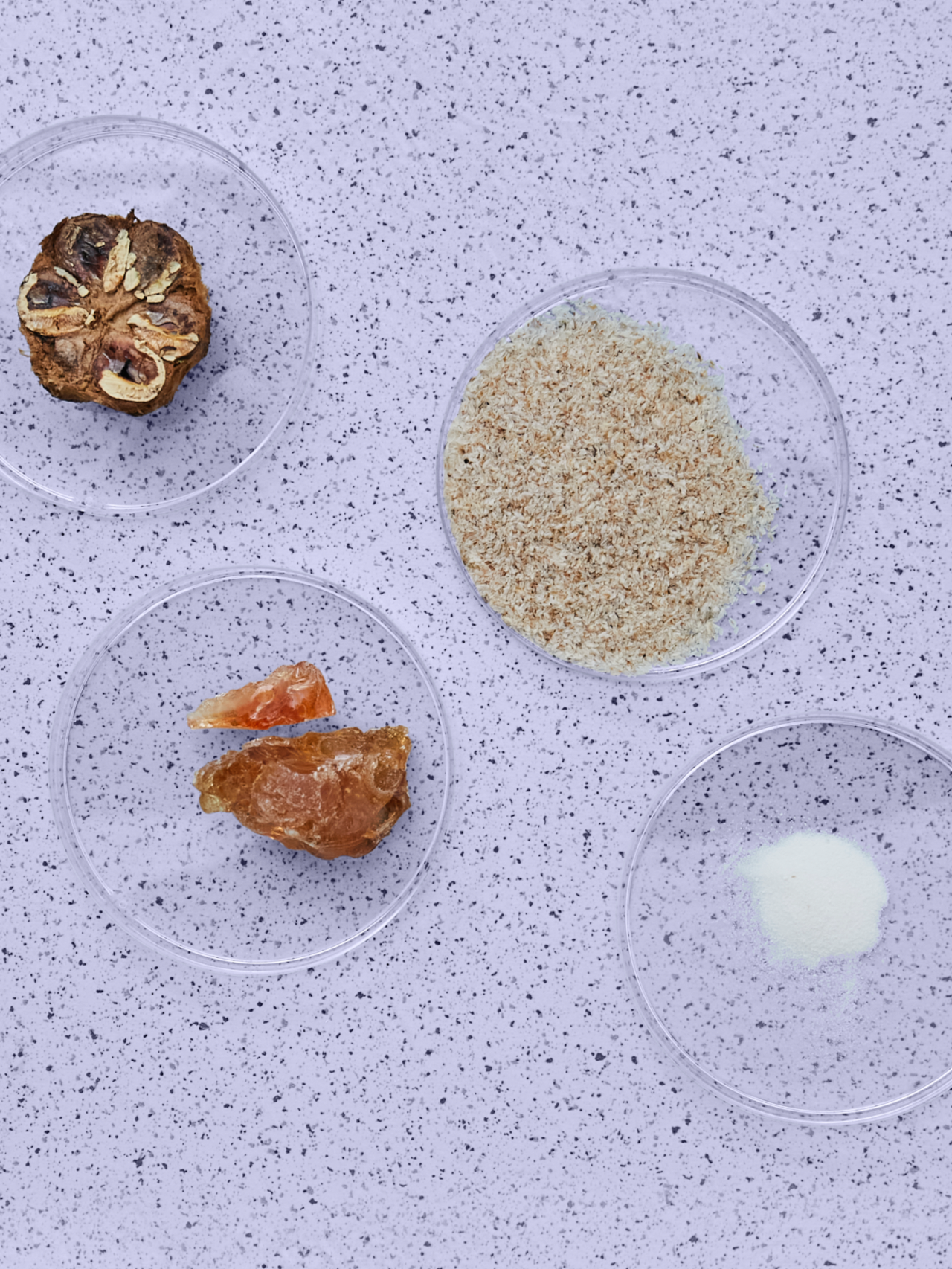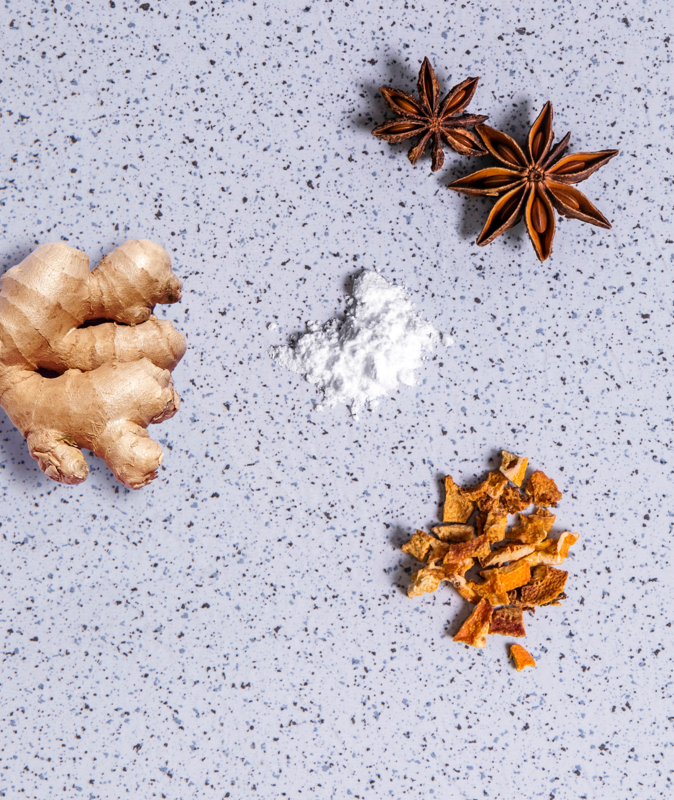
Ever wonder what stands between you and a world of potential health challenges? It's your gut barrier — a critical yet often overlooked defender of your health. At Hilma, we understand that this unsung hero plays a pivotal role in your overall wellness, but what exactly is it, and why is it so vital?
In this article, we're diving deep into the fascinating world of the gut barrier, exploring its functions, importance, and how it interacts with your body to support health and well-being. So, if you're curious about the inner workings of your digestive system and how to keep it in tip-top shape — keep reading!
What Is the Gut Barrier and Why Is It Important?
The gut barrier, essentially the gatekeeper of your gut, is a complex system primarily made up of the intestinal epithelial lining along with a protective mucus layer. It's not just a physical barrier — it's a dynamic interface between your internal environment and the outside world.
Here's why it's so important for your health:
- Protection Against Pathogens: The gut barrier acts as a shield, blocking harmful microbes and toxins from entering the bloodstream.
- Regulation of Nutrient Absorption: It selectively allows nutrients to pass through, ensuring your body gets what it needs.
- Support for Immune Function: A significant portion (70 to 80%) of the body's immune system is located in the gut. The barrier helps coordinate the immune response to keep it balanced.
- Maintaining Overall Health: An intact and functioning gut barrier is essential for preventing diseases like irritable bowel syndrome and autoimmune conditions.
What Are the Layers of the Intestinal Barrier?
While we've touched on the role of the gut barrier, let's explore its intricate structure that shields us from harm. The intestinal barrier comprises:
- Physical Barrier: Made up primarily of intestinal epithelial cells linked by tight junction proteins like claudin and occludin, which regulate the passage of substances.
- Mucus Barrier: This layer is produced by goblet cells and includes mucin, among other proteins, creating a protective gel that prevents direct contact between the intestinal epithelium and potential antigens or microorganisms.
- Immunological Barrier: A sophisticated network of immune cells, including macrophages and dendritic cells, works closely within the gut to detect and respond to pathogens, maintaining immune balance.
Grasping the complexity of these layers sheds light on their essential role in our overall gut health and how we can actively support this natural protective barrier.
How Does the Gut Microbiota Influence Our Health?
The gut microbiota plays an indispensable role in maintaining your health. This complex community of bacteria, fungi, and viruses does more than just aid digestion — it impacts your overall wellness in several key ways:
Immune System Modulation
The gut microbiota is integral in training and regulating your immune system. By interacting with immune cells within the gut mucosa, it helps ensure your body’s defense system acts appropriately, warding off infections while avoiding unnecessary inflammation.
Barrier Enhancement
Healthy gut microbes contribute to the strength and integrity of the gut barrier. They support the mucosal lining, helping ensure it effectively blocks harmful substances and pathogens from entering the bloodstream.
Metabolic Benefits
These microbes influence metabolic processes, affecting everything from energy production to weight regulation and even how your body responds to insulin.
Protection Against Overgrowth of Harmful Microbes
By occupying space and utilizing available nutrients, your gut microbiota helps prevent the colonization by pathogenic microbes, maintaining a balanced microbial environment.
What Is the Impact of Dysbiosis on Gut Health and Beyond?
When the balance of microbes in your gut is off, we call it dysbiosis. Think of it as having an upset in the community that can lead to a series of local troubles — and these aren't limited to your gut.
Here are a few common signs:
- Stomach Issues: Bloating, gas, or changes in bowel habits — these are your first hints that the harmony in your gut microbiota might be disturbed.
- Unexpected Food Sensitivities: Suddenly, foods you used to enjoy without issue might start to bother your stomach. This can happen when your gut barrier isn't as strong as it should be.
- Feeling Worn Out: When your gut is off, it can sap your energy and leave you feeling unusually tired or down.
Dysbiosis is linked to several conditions that might sound familiar:
- Gut Permeability (aka increased intestinal permeability): Often referred to as "leaky gut," this occurs when the integrity of the intestinal barrier is compromised, allowing substances that normally wouldn't pass through into the bloodstream. This can trigger inflammation and may contribute to various health issues, including autoimmune diseases.
- Digestive Disorders: Conditions like inflammatory bowel disease (IBD), which includes Crohn's disease and ulcerative colitis, are more common when your gut flora is out of whack.
The field of gastroenterology is intensely interested in the connections between dysbiosis, gut health, and these wider health issues. It’s clear that maintaining a balanced gut microbiota is key to keeping these problems at bay.
So, What Can You Do About It?
Recognizing the impact of dysbiosis on your gut health and beyond is the first step. Now, let's look at some effective ways you can support your gut barrier and microbiota.
Here are 10 tips to help you nurture your gut health:
Hydration Is Key
Let’s start simple. Drinking plenty of water isn't just good for quenching thirst — it supports the mucin secretion that's so essential for protecting your gut's delicate lining. Think of it as keeping the river flowing to avoid any clogs in the system.
Fiber Up
High-fiber foods give your gut microbes what they need to thrive and keep the intestinal barrier strong. Whether it's veggies, fruits, or whole grains, these foods help keep things moving and improve your overall gut function.
Pro tip: For an easy, tasty way to boost your fiber intake, try our Fiber Gummy — perfect for supporting gut microbiome and mucosal barrier health.
Cut Down on Junk
Processed foods and sugars can throw your gut into disarray. They often lead to weight gain and can disrupt the delicate balance of your gut flora, so steering clear can help maintain your gut health and barrier integrity.
Probiotics
Introducing good bacteria into your diet through probiotics can be a game-changer. These beneficial bugs colonize your gut, supporting its function and helping fend off unwanted microbes. You can find them in yogurt, kefir, or our Daily Pre + Probiotic + Herbs — a subtle boost for your daily routine.
Get Moving
Exercise isn’t just about staying fit — it also helps keep your gut in shape. Regular movement has been shown to boost gut health, aiding the motility of your gastrointestinal tract and ensuring everything functions as it should.
Use Natural Antimicrobials Sparingly
While it's important to manage pathogenic bacteria, overly aggressive use of natural antimicrobials can disrupt commensal microbial populations.
Stress Less
Stress can tighten your gut and throw your internal ecosystem into chaos. Finding ways to relax and unwind, be it through meditation, reading, or a walk in the park, can help keep your gut calm and your barrier intact.
Smart Antibiotic Use
Antibiotics are sometimes necessary, but they can nuke your gut flora. If you need them, make sure to rebuild your gut community with probiotics and lots of fibers afterward.
Antioxidant-Rich Foods
These nutritional powerhouses help combat oxidative stress that can damage gut cells. Load up on colorful fruits and vegetables to give your gut the best defense against wear and tear.
Catch Plenty of Sleep
Never underestimate the power of a good night's sleep. It’s crucial for resetting your body and has a profound effect on gut health, helping regulate the necessary functions that keep your intestinal lining strong.
Pro Tip: Struggling to catch quality ZZZs? Combat sleeplessness and head tension with our Sleep Essentials — a soothing blend of Magnesium and herbs designed to help you relax and enhance your sleep quality.
Diversify Your Diet
Incorporating a variety of foods ensures a wide range of nutrients that support the gut microbiome and enhance intestinal barrier function. Include foods rich in polyphenols, like berries, nuts, and green tea, which help nourish your gut lining and keep your immune system in tip-top shape.
Mind Your Meds
Some medications, especially non-steroidal anti-inflammatory drugs (NSAIDs), can harm gut barrier integrity. Always discuss with your healthcare provider about the necessity of these medications and potential alternatives that are gentler on your gut.
When Should You Reach Out to a Healthcare Professional?
While maintaining gut health can often be managed with the right dietary choices and lifestyle interventions, there are certain signs that shouldn't be ignored:
- Persistent Discomfort or Pain: If you're experiencing ongoing discomfort or severe pain in your small intestinal area, it’s a signal to seek medical advice.
- Significant Changes in Bowel Habits: Frequent episodes of diarrhea, constipation, or noticeable changes in stool appearance could indicate intestinal barrier dysfunction or other serious conditions.
- Increased Gut Permeability Symptoms: Symptoms like food sensitivities or bloating might suggest changes in your gut permeability.
- Unusual Weight Fluctuations: Whether it’s unexpected weight loss or gain, these could be linked to gut health issues, possibly even affecting liver disease pathways or gut-associated obesity.
- Extreme Exhaustion: If changes in your diet or supplementation don't alleviate persistent tiredness, this could be a sign of deeper issues related to gut health homeostasis.
Let's Get Gut Healthy Together!
Here at Hilma, we believe in the power of a strong gut barrier — it's essential for your overall health and well-being. By understanding the complex roles of microorganisms, antigens, and immunological responses in your gut, we provide solutions that support the pathogenesis and differentiation critical to maintaining gut barrier function.
Our focus on nurturing the intestinal epithelial cells and balancing intestinal microbiota helps ensure your gut is performing optimally. Whether it's enhancing your diet with our supplements or guiding you on how to maintain the ideal balance of your gut's ecosystem, we're here to support every step of your journey to better health.
Join us in embracing a lifestyle that values and enhances your gut health because when your gut feels good, you feel good.
Sources:
Enhancing intestinal barrier efficiency: A novel metabolic diseases therapy | Frontiers in Nutrition
Regulation of Intestinal Barrier Function by Microbial Metabolites | ScienceDirect
If you want to boost immunity, look to the gut | UCLA Health
Leaky Gut Syndrome: Symptoms, Diet, Tests & Treatment | Cleveland Clinic
Dysbiosis | Sci: an overview | ScienceDirect Topics
The Gut Microbiome and Its Role in Obesity | PMC
Intestinal Barrier in Human Health and Disease | PMC





